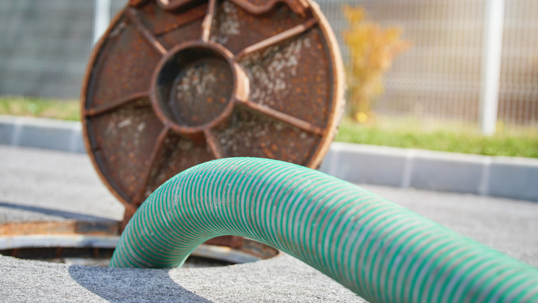Nobody ever wants to deal with a sewer backup, but it happens. Sewer backups can be a disastrous experience, and are often costly to fix. There are different reasons sewer backups occur, and identifying the root cause is key to preventing future blockages. Today we will look at the most common sewer backup causes, as well as quick and easy solutions to get you back to normal.
Tree Roots
One of the most common causes of sewer backups is tree roots growing into the main sewer line. As trees grow and mature, their roots can invade and block pipes intended for sewer waste and water. A single tree root can penetrate a pipe and, if not addressed early, bulge the pipe and cause a blockage. To solve this problem, hire a professional plumber to use specialized equipment to cut and remove the roots.
Grease Buildup
Another common sewer backup culprit is fats, oils, and grease (FOG) accumulating in pipes. The buildup occurs when homeowners pour grease, unwanted food particles, or oil down the sink, shower, or toilet. These materials slowly build up along pipes and create stubborn clogs. To prevent this, avoid disposing of grease or oil and look for greasy stains around the sink and toilet. Dispose of FOG in the trash, and only allow soap and water to go down the drain.
Foreign Objects
Sometimes foreign objects can unintentionally find their way down the drain, causing blockages that impair the sewer system’s efficiency. Common items include feminine hygiene products, baby wipes, paper towels and toys. These materials may create blockage in the sewer pipe that can only be removed by professional plumbing services. Always stay mindful of objects that shouldn't go down the toilet or sink.
Structural Damage
Sometimes, even the most resilient sewer pipe can crumble due to age, harsh weather conditions, and other natural disasters, leading to a backup in the sewer system. Rust, poor installation, and soil erosion are other factors that can lead to structural damage. A professional plumber will diagnose the issue and advise on the best course of action.
Poor Maintenance
Finally, poor maintenance and neglect can cause various sewer issues leading to backups. Issues such as ignoring leaking faucets, showerhead leaks, or running toilets can cause system overload and clogs. Happily, homeowners can prevent this by scheduling professional sewer inspections regularly, tackling any problems promptly, and avoiding flushing unapproved objects down the sink or toilet.
Conclusion
Prevention is the key to keeping your sewer system clear and healthy. Regular plumbing inspection and maintenance can help you avoid costly repairs and sudden sewer backups. However, should you experience any plumbing issues, sewer blockages, or backups, don't hesitate to reach out to professional plumbing services. Their expertise ensures that your plumbing system is operating at peak performance, minimizing the risk of sewer blockages and backups. With the quick fixes provided in this post, homeowners can prevent sewer backups and ensure that they don't interfere with daily life.

